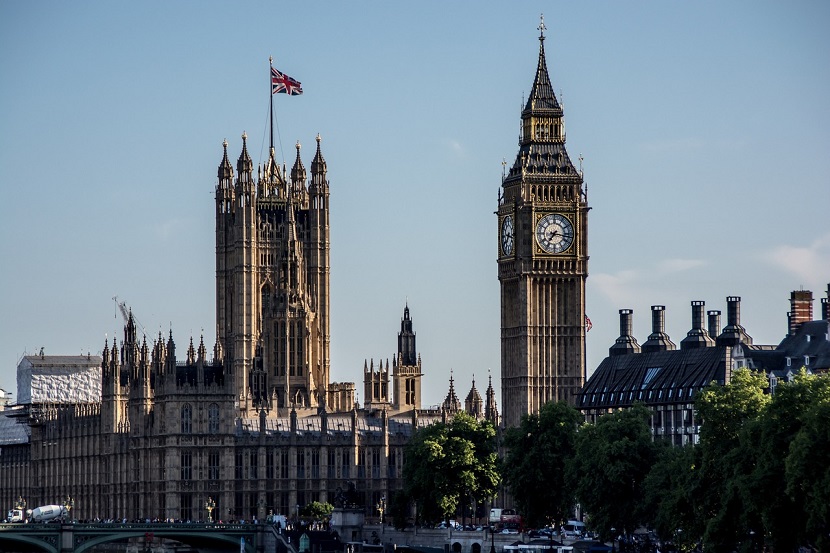The UK’s public finances are under additional strain as there is an ultra-wealthy exodus of the country. In the past, Britain was a global leader in luring the super-rich to its borders. Millionaire businesspeople and affluent families came to the UK because of the country’s large tax incentives, straightforward visa process, and promising economic outlook.
But a slew of harsh tax reforms, a shaky political climate, and more stringent immigration laws have made the ultra-wealthy avoid UK and move their fortune elsewhere. According to experts, this reduced the country’s tax revenue and forced average households to pay more taxes to make up the difference.
Ultra-wealthy exodus on the rise
The research by the migration consultant Henley & Partners reported that more millionaires are leaving the UK than are immigrating. Since 2017, the nation has seen a net exodus of 12,000 ultra-wealthy, or those with assets and cash worth more over $1 million (£830,000), with 1,500 of these people expected to leave in 2022. Experts claimed that UK “losing its appeal” among the ultra-wealthy was due to covert tax raids and increased monitoring of overseas nationals.
The number of people claiming “non-dom” tax status, which exempts British citizens who have a permanent residence outside of the UK from paying British tax on their foreign income or capital gains, has also dropped significantly. According to a Freedom of Information request made to HM Revenue & Customs by the law firm Pinsent Masons, the number of new applications for the tax relief decreased from 14,200 to 8,500 in the 2020–21 tax year. From the 15,400 new claims made in 2018–19, it represented a further fall. Recent changes have diminished the non-dom status’s tax advantages and made it less desirable, especially when contrasted to other countries’ more liberal tax policies.

Blame the ultra-wealthy exodus on the UK tax rules
Experts say that the continual introduction of new, stricter regulations has scared off many people. Since 2008, claimants in the UK who were residents for seven out of the prior nine tax years have been required to pay a £30,000 yearly fee. After having resided during 12 of the previous 14 tax years, this increases to £60,000.
Another regulation change was implemented in 2017, which means that anyone who has lived in the UK for at least 15 of the last 20 years immediately qualifies as a UK resident and is subject to UK income tax on their global wealth like the rest of the populace. Because of the 15-year limit, quite a few non-doms have departed the UK, and this may continue for a lot of years, according to Steven Porter of the legal firm Pinsent Masons. Simply put, it’s not as pleasant for people to stay here now.

Other countries are trying to attract the ultra-wealthy
The UK’s non-dom regime formerly made the rest of the world green with envy, according to Nimesh Shah of the tax consulting firm Blick Rothenberg. However, in recent years, the overall luster has faded and it has lagged behind other nations, which have been fiercely striving to entice wealthy talent.
Rich businesspeople and investors have also been alarmed by Labour’s pledges to completely remove non-dom status should it win the next election, according to experts. Other nations are vying for the talents and money of those who feel undervalued by Britain.
An analyst named Andrew Amoils from New World Wealth stated: “The UK used to be quite wise at enticing individuals to move there. Since 2017, there has been a noticeable increase of ultra-wealthy exodus. Although other English-speaking nations, including Australia, are currently fiercely fighting for that talent, the English language has always kept the UK on the map when it comes to luring foreign riches”.
According to Mr. Amoils, the British inheritance tax structure continues to dissuade overseas nationals. With the possible exception of France and Japan, he claimed that the UK has a relatively low threshold for inheritance tax and a high rate of taxation compared to other nations. “There are first-world countries that don’t have inheritance tax, like Australia”. He adds that other nations are currently in the lead in the race to entice wealthy overseas nationals with favorable tax policies. Greece gained 1,200 millionaires last year, Portugal 1,300, and Switzerland 2,200.

UK’s economy takes a hit
The British economy faces serious risks as a result of the ultra-wealthy exodus of the UK and its inability to attract wealthy talent on a global scale. Business executives and investors moving abroad due to Britain’s onerous tax laws would have a “major long-term impact,” according to experts. When people are this wealthy, according to Mr. Porter, they can afford to be fussy about where they live and where they put their money. Tax benefits are at the top of their agenda when they can compare prices.
According to figures from HMRC, the number of non-doms in the UK has decreased by almost half since 2015, from 123,000 to 68,300 in 2021. In spite of a decline in new non-doms registering in the UK in 2020–21, which it partially attributed to decreased travel because of the pandemic, the government asserted that its tax revenue from these people remained roughly consistent with prior years.
Approximately on par with 2020 and 2019, HMRC predicted that it collected £5.6 billion in income tax from non-doms in 2021. The 15-year rule was implemented in 2017, therefore this is £1.3 billion less than that year. The amount of national insurance payments paid by non-doms decreased from £2.3 billion to £1.9 billion over the same time period, and the amount of capital gains tax they paid decreased from £402 million to £336 million, both of which contributed to a hole in the British public finances.

What will boost the country’s economy now?
However, the economic effects of fewer rich people in the UK go beyond the revenue lost to taxes. “Many of the non-doms I work with are moving to the UK to launch prosperous enterprises and boost the country’s economy”, according to Mr. Shah.
In addition to the money to invest and the UK taxes, Mr. Porter explained that with them went skill and entrepreneurship that might otherwise have boosted the economy.



